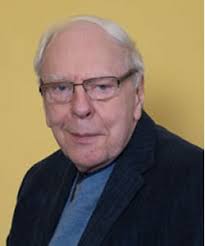Robertson, Roland

Bio: (1938-2022) British-American sociologist. Roland Robertson teaches at the University of Aberdeen, and previously taught at the universities of Pittsburgh and Essex. Robertson became primarily known for his research on modernization and the cultural changes it brought about. He approaches the phenomenon of modernization from the perspective of Parsons' functionalism. Robertson observed the process of modernization at the level of the entire planet, which influenced him to become one of the first theorists of globalization. In a series of articles, which will later be published in the book Globalization: Social Theory and Global Culture (1992), Robertson developed a specific sociological approach to globalization. In the same book, he defines globalization as "the compression of the world and the intensification of the consciousness of the world as a whole" (Robertson, 1992). Robertson does not believe that globalization occurred after the cessation of modernization, but that globalization is only a continuation of the process of modernization at the global level.
To better explain the relationship between the spread of modernization throughout the world and local cultural specifics, Robertson introduced the notion of "glocalization" into sociology. This term refers to a situation in which the expansion of global culture is taking place, but, at the same time, local traditions are being preserved, as well as a concurrent and related process of specific transformation of global trends, in order to more easily fit into local culture. One of the examples of glocalization is the spread of nationalism as an ideology, which originated with modernization in the West and spread across the planet, but which is operationalized and contextualized in different ways in each local culture. Another example cited by Robertson is the global market for goods and services and the spread of consumer culture.
Although the market for goods and services is becoming more and more global, and consumer culture (consumerism) is spreading to all parts of the world, the global market is adapting to specific local markets. The production and marketing of many goods and services, sold globally, is adapted to local tastes and consumer habits. The notion of glocalization tends to overcome the debate between those who believe that homogenization is taking place and those who believe that the heterogenization of the world is happening. What often happens is a combination of homogenization with heterogenization and universalism with particularism. While arguing that the world is shrinking, Robertson warns that "we should not equate the communicative and interactive connecting of such cultures with the notion of homogenization of all cultures. We should not, in other words, conflate discussion of the culture of interaction between two or more socio-cultural collectivities with the issue of whether a generalized process of homogenization of all cultures is occurring”(1995b).
Robertson has also made great contributions in the field of sociology of religion and is one of the few sociologists who has studied the relationship between world religions and the process of globalization. In Sociological Interpretation of Religion (1970b), he defines religion as a set of beliefs, symbols, and values that relate to a supra-empirical, that is, transcendental reality. For religious people, the supra-empirical (religious) reality is more important than empirical, everyday reality. Since ideologies have many features that they share with religions but do not have a relationship with supra-empirical reality, it is best to view ideologies as surrogate religiosity. Robertson also studied the relations between the state and the church in the world and concluded that in most countries there is a distance between the church and the state, and there are different interests and moral conflicts between the two sides.
Fields of research
Authority Church Communication Consumerism Culture Economy Ethnicity Globalization Ideology Market Marketing Modernity and Modernization Religion Secularization Sign and Symbol State TraditionTheoretical approaches
Globalization ApproachMain works
International Systems and the Modernization of Societies (1968);
Meaning and Change: Explorations in the Cultural Sociology of Modern Societies (1970a);
The Sociological Interpretation of Religion (1970b);
Identity and Authority: Explorations in the Theory of Society (1980);
Church-State Relations: Tensions and Transitions (1987);
Talcott Parsons: Theorist of Modernity (1991);
Religion and Global Order (1991);
Globalization: Social Theory and Global Culture (1992);
Global Modernities (1995a);
Theory of Modernity: Parsons' Perspective (1995b);
Globality and Modernity (2002);
Global Culture: Consciousness and Connectivity (2017).

